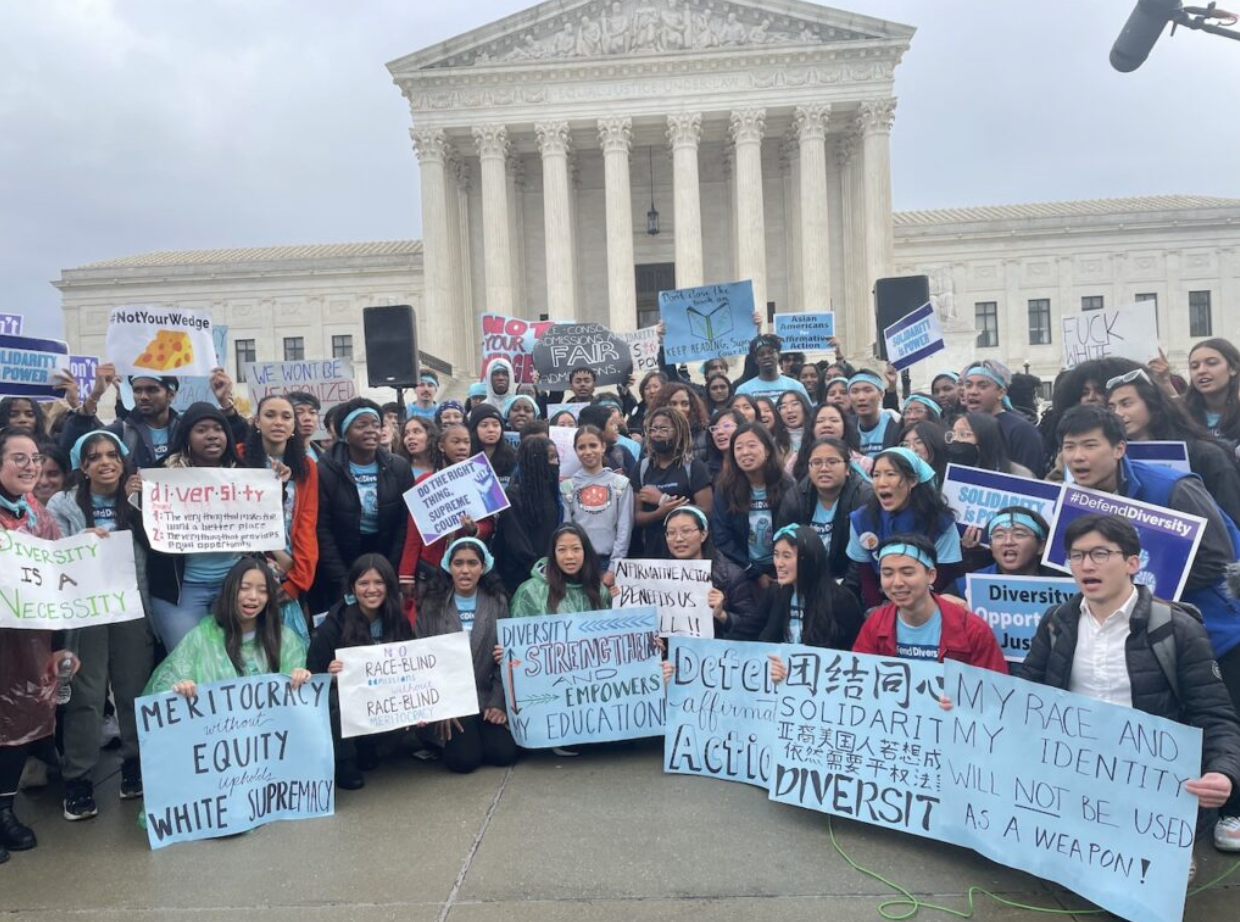
BLOG
Proposal to End Affirmative Action Ignores Data and Opportunity for Broad Prosperity

Rev. Shantell Hinton Hill
Senior Equity Officer
Narrative Change & Strategic Communications
At the dawn of the Civil Rights Movement, activists, community leaders, and everyday citizens who cared about American democracy ushered in an era of unprecedented political reform.
They fought with blood, sweat and tears to obtain equal protection under the law, win the right to vote for women and African Americans, and overcome legal systems of oppression like Jim Crow laws (also known as the Black codes).
Among such reforms, President John F. Kennedy signed an executive order in 1961 to “take affirmative action to ensure that applicants are employed, and employees are treated during employment, without regard to their race, creed, color, or national origin.”
Four years later, President Lyndon B. Johnson further solidified this policy by prohibiting employment discrimination based on race, religion, national origin, and (later) gender.
Yet, in the last 20 years, there has been a growing debate about the efficacy of so-called “race-conscious” legislation around education and employment practices. The Supreme Court is in active deliberation concerning federal mandates of race-conscious admissions practices in higher education. Nine states have overturned affirmative action across state agencies and government employment.
With the introduction of recent legislation, Arkansas joins the growing list of states considering affirmative action a necessity of the past, despite ample evidence that racial and gender disparities effectively thwart our communities and entire state from experiencing greater prosperity.
In 2021, WRF partnered with community leaders, nonprofit organizations, and local listening groups to understand Arkansans’ knowledge, beliefs, attitudes, and practices (KBAP) around economic and racial equity.
The polling revealed that Arkansans care about economic equity but feel more concerned that racial equity is a huge barrier to progress for many individuals, families and businesses.
Additionally, our ABCs of Equity reports outline the opportunities available to all of us if we boldly address—rather than ignore— the disparities in our current economy:
They fought with blood, sweat and tears to obtain equal protection under the law, win the right to vote for women and African Americans, and overcome legal systems of oppression like Jim Crow laws (also known as the Black codes).
Among such reforms, President John F. Kennedy signed an executive order in 1961 to “take affirmative action to ensure that applicants are employed, and employees are treated during employment, without regard to their race, creed, color, or national origin.”
Four years later, President Lyndon B. Johnson further solidified this policy by prohibiting employment discrimination based on race, religion, national origin, and (later) gender.
Yet, in the last 20 years, there has been a growing debate about the efficacy of so-called “race-conscious” legislation around education and employment practices. The Supreme Court is in active deliberation concerning federal mandates of race-conscious admissions practices in higher education. Nine states have overturned affirmative action across state agencies and government employment.
With the introduction of recent legislation, Arkansas joins the growing list of states considering affirmative action a necessity of the past, despite ample evidence that racial and gender disparities effectively thwart our communities and entire state from experiencing greater prosperity.
In 2021, WRF partnered with community leaders, nonprofit organizations, and local listening groups to understand Arkansans’ knowledge, beliefs, attitudes, and practices (KBAP) around economic and racial equity.
The polling revealed that Arkansans care about economic equity but feel more concerned that racial equity is a huge barrier to progress for many individuals, families and businesses.
Additionally, our ABCs of Equity reports outline the opportunities available to all of us if we boldly address—rather than ignore— the disparities in our current economy:
-
- In AR, 1 out of every two families you know struggles to pay for basic necessities and provide stable homes for their children. The research also unequivocally documents the persistent and widening disparities in income and wealth between Black households and households of other races and ethnicities.
-
- Between 2015 and 2019, Arkansas small businesses received nearly $1 billion in financing through the SBA 7(a) program. Only 1.2% ($12M) of these investments supported Black-owned businesses, and 1.8% ($18M) supported Latinx-owned businesses.
-
- If economic equity were achieved and all households earned at least the minimum to make ends meet, we would add $8 billion to Arkansas’ economy, $2.5 billion to our state budget, and an extra $6.6 billion in revenue for Arkansas’ businesses.
Arkansas has everything to gain by addressing the realities facing our workforce and economy head-on. As we have in the past, it’s time for activists, politicians, community leaders, and everyday citizens to come together and champion change that makes good sense and dollars for Arkansas businesses.
